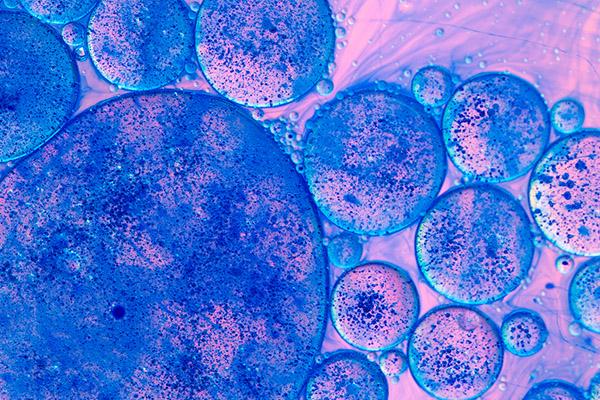
Exploring Biological Therapies for Non-Healing Wounds: A Promising Treatment for Kansas City Residents
For many Kansas City residents, chronic or non-healing wounds can be frustrating and overwhelming. Whether due to diabetes, vascular issues, or surgery complications, these wounds often require more than just basic care. In cases where traditional treatments have failed, biological therapies offer an innovative solution to speed up healing and improve outcomes.
At Trinity Woundcare & Wellness Clinic, we are proud to offer biological therapies as part of our comprehensive wound care treatment options. In this article, we’ll explore what biological therapies are, how they work, and why they are proving to be effective for chronic wounds in Kansas City.
What Are Biological Therapies?
Biological therapies refer to treatments that use living cells, tissues, or proteins to promote the healing of wounds. Unlike traditional wound care treatments, biological therapies actively encourage the body’s natural healing processes, using resources that regenerate tissue, stimulate cell growth, and enhance immune function.
These therapies can include:
Growth factors (proteins that stimulate cell growth)
Platelet-rich plasma (PRP) therapy (uses a patient’s own blood platelets to accelerate healing)
Amniotic membrane (from donated placental tissue, rich in growth factors and stem cells)
Collagen products (used to promote tissue regeneration and healing)
“Biological therapies have shown promising results in treating chronic wounds, particularly in patients with poor healing due to conditions like diabetes or vascular disease.”
— Journal of Wound Care, 2023
How Biological Therapies Aid Wound Healing
Traditional treatments like antibiotics, dressings, and bandages address the basic needs of a wound. However, they don’t always promote tissue regeneration or stimulate the body’s healing mechanisms. Biological therapies, on the other hand, work at a cellular level to:
1. Stimulate New Tissue Growth
Growth factors and stem cells promote the formation of new tissue, collagen, and blood vessels, all of which are essential for healing a wound. Amniotic membrane and PRP therapy contain growth factors that stimulate the body’s natural regenerative processes, helping the wound heal more quickly and with stronger tissue.
2. Reduce Inflammation
Chronic wounds often persist due to prolonged inflammation. Biological therapies like PRP therapy help to reduce inflammation at the wound site, which accelerates healing and prevents the wound from becoming stuck in the inflammatory phase.
3. Improve Oxygen and Nutrient Delivery
PRP therapy and other biological treatments can help increase blood flow to the wound area. This improves the delivery of oxygen, nutrients, and immune cells, which are all essential for proper healing. Without adequate circulation, chronic wounds are less likely to heal properly.
“Amniotic membrane and PRP therapies both contribute to wound healing by reducing inflammation, increasing tissue regeneration, and improving circulation.”
— American Journal of Surgery, 2022
Common Uses of Biological Therapies in Wound Care
Biological therapies are most commonly used for chronic or non-healing wounds, including:
Diabetic ulcers: Diabetes can cause poor circulation and nerve damage, leading to slow or non-healing ulcers.
Venous leg ulcers: These open sores are caused by poor blood flow and often fail to heal with standard treatments.
Pressure ulcers (bedsores): Chronic wounds caused by prolonged pressure, particularly in immobile patients.
Post-surgical wounds: Sometimes, surgical wounds fail to close properly and require advanced treatments for healing.
Biological therapies can also be helpful for patients who have already tried traditional treatments without success, providing a more effective solution for wounds that won’t heal on their own.
The Trinity Approach: Personalized Wound Care with Biological Therapies
At Trinity Woundcare & Wellness, Dr. Judy takes a holistic and patient-centered approach to wound care. When biological therapies are appropriate, we provide treatments that are tailored to your specific condition, wound type, and overall health.
Dr. Judy and the team carefully evaluate your medical history, conduct a thorough assessment of your wound, and then recommend a customized treatment plan that may include biological therapies like PRP, growth factor treatments, or collagen-based products.
We also incorporate lifestyle and nutrition support to promote healing from the inside out. Proper hydration, nutrition, and stress management are all part of the healing process, and Dr. Judy works with each patient to ensure they are fully supported throughout their recovery.
Learn more about our wound care services here »
Is Biological Therapy Right for You?
Not all wounds require biological treatments, but if you’ve been struggling with chronic, non-healing wounds, these therapies may be the solution. The best way to determine if biological therapies are right for you is to schedule a consultation with Dr. Judy at Trinity Woundcare & Wellness.
During your appointment, we’ll assess your wound, review your medical history, and discuss your options for advanced wound care. Dr. Judy will guide you through the entire process, ensuring you feel informed and comfortable every step of the way.
Call us at 913-285-5553 or visit 8043 State Ave, Kansas City, KS 66112 to schedule your consultation.
About the Author
Dr. Judy earned her Doctorate in Nursing Practice from the University of Kansas and has over 24 years of experience in healthcare, specializing in wound care, regenerative medicine, and integrative therapies. Dr. Judy combines her clinical expertise with a holistic approach to treat chronic wounds and promote healing for Kansas City residents.
Keywords
biological therapies for wounds Kansas City, PRP therapy for non-healing wounds, chronic wound care Kansas City KS, growth factors for wound healing, amniotic membrane wound care, Dr. Judy wound care specialist, Trinity Woundcare & Wellness Clinic, biological treatments for chronic wounds, venous ulcer treatment Kansas City, regenerative medicine wound care Kansas City
